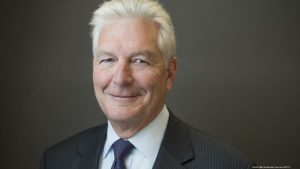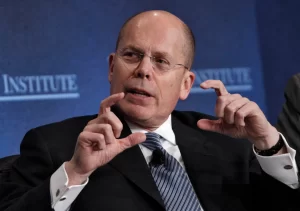Pinpointing the absolute richest hospital CEO might be a challenging task due to the dynamic nature of wealth accumulation, varying compensation structures, and the privacy of personal finances. However, it’s possible to shed light on some of the highest-paid hospital CEOs who have notably commanded substantial compensation packages within the healthcare industry.
Hospital CEOs and Their Compensation Packages
1. R. Milton Johnson (formerly of HCA Healthcare):

R. Milton Johnson, the former CEO of HCA Healthcare, was known for his significant compensation package. Under his tenure, HCA Healthcare, one of the largest hospital chains in the USA, recorded substantial growth. In 2018, Johnson’s total compensation package exceeded $109 million, placing him among the highest-paid hospital CEOs at the time.
2. Wayne T. Smith (Community Health Systems):

Wayne T. Smith, the former CEO of Community Health Systems (CHS), received substantial compensation during his tenure. CHS, another prominent hospital operator, faced financial challenges, yet Smith’s compensation packages remained noteworthy, though exact figures may have varied from year to year.
3. Stephen J. Hemsley (UnitedHealth Group):

Although not a hospital CEO per se, Stephen J. Hemsley, former CEO of UnitedHealth Group, a leading healthcare company with diverse operations, had an impactful presence in the healthcare sector. His compensation packages were among the highest in the industry.
4. Notable Figures in Nonprofit Hospitals:
CEOs of nonprofit hospitals may not always receive as much attention for their compensation due to the focus on revenue reinvestment. However, leaders of major nonprofit healthcare systems such as Kaiser Permanente, Cleveland Clinic, and Mayo Clinic have historically commanded significant salaries and benefits packages commensurate with the scale of their institutions.
Factors Influencing CEO Compensation in Healthcare
1. Hospital Size and Revenue:
The size and financial performance of hospitals play a crucial role in determining CEO compensation. CEOs of larger hospital systems with higher revenues tend to receive more substantial compensation packages.
2. Performance Metrics and Achievements:
CEO compensation often correlates with the organization’s performance metrics, including financial growth, patient satisfaction, and strategic achievements.
3. Market Demand and Competition:
Competition for talented executives in the healthcare sector influences compensation. Hospitals may offer lucrative packages to attract or retain top-tier CEOs, especially those with proven track records of success.
Transparency and Public Scrutiny
While CEO compensation in the healthcare industry can be substantial, it often draws public scrutiny, especially in nonprofit organizations or amidst controversies regarding healthcare costs. Transparency regarding executive compensation, increasingly demanded by stakeholders and the public, continues to be a focus area for many institutions.
Conclusion
Identifying the absolute richest hospital CEO involves navigating through a complex web of compensation structures, varying financial disclosures, and evolving financial circumstances. However, the healthcare sector, being a critical part of society, often brings attention to the compensation packages of its top executives, prompting discussions about fairness, accountability, and the balance between rewarding leadership and ensuring fiscal responsibility.
It’s essential to understand that while some hospital CEOs command significant compensation, their roles also carry immense responsibility for steering healthcare institutions toward effective patient care, financial stability, and sustainable growth in an ever-evolving healthcare landscape. As the industry continues to evolve, the discussion around executive compensation in healthcare remains a topic of interest and scrutiny.



